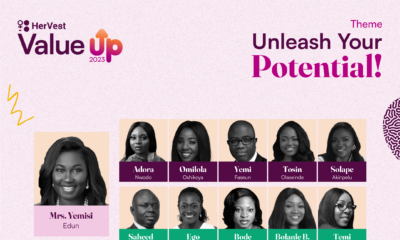Career
Tunji Andrews: What Building Lean Muscles Taught me About Entrepreneurship

At the start of the year I set a fitness goal for myself, that looking back now, was perhaps a little too optimistic. The goal was to add an additional 10kg to my 100kg frame, while simultaneously cutting my body fat to 10%. To achieve this, I needed to increase my workout days to 6 days a week, run 40km per week, but most importantly up my food/calorie intake; and for the most part, it looked pretty straight forward. Only problem was that with my very busy schedule, I tend skip meals, sometimes I could go 24 hours on just a couple if slices of pie.
I started to worry that I might not achieve my goals (Which I won’t), till I looked in the mirror recently and discovered what had been happening to my body.
I had added 2kg in this time despite shedding a huge amount of body fat. This route is longer and harder but it ensures that you’re getting the desired results without packing on fat as you go. You see, weight gain follows a simple principle of calories in vs. calories out. If you take in more calories than you consume, you gain weight, it’s that simple. However, while you require additional calories to build muscle, you can only assimilate so much, all the rest turns to fat and thus you grow a bulging tummy and spares on your sides.
Now with business, there is a concept called the Lean Startup. It provides a faster and efficient way for startups to get desired products to customers. As I always say, there’s a huge difference between what you have on paper as a sales model, what customers want to buy, and how they want to buy it. With the Lean Startup method, you really don’t need to obsess over creating the right model, you simply just step out, start selling and create the model based on feedback from your proven sales.
Too many startups begin with an idea for a product that they think people want. They then spend months, sometimes years, perfecting that product without ever showing the product, even in a very rudimentary form, to the prospective customer. When they fail to reach broad uptake from customers, it is often because they never spoke to prospective customers and determined whether or not the product was interesting. When customers ultimately communicate, through their indifference, that they don’t care about the idea, the startup fails.
Entrepreneurs following this method test their hypotheses by engaging with potential customers, purchasers, and partners to get their reactions about product features, pricing, distribution, and customer acquisition. With the information they gain, they make small adjustments called iterations to fix anything minor that isn’t working, and large adjustments called pivots to fix anything major that isn’t working.
The truth is, I could have quit my workout regime due to my poor eating habits; as any body builder will tell you, weight gain without increasing your calorie intake is near impossible. However, in continuing the bit that I could, I have been able to find a way to achieve my goals in a more efficient way. The same principle applies to business, consistency, that’s the key.

















